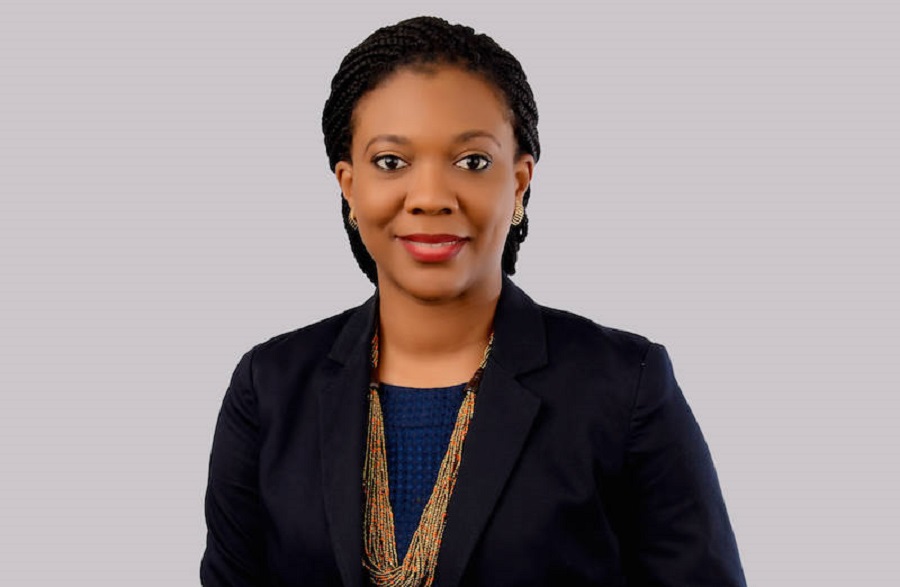By
Abiola OdutolaThe recent rally witnessed in the Nigerian stock market has been
driven mostly by increased liquidity from market activities of local
investors amidst depressed yields in the fixed income space.
In an interview with Lilian Olubi, Chief Executive Officer, EFG
Hermes Nigeria, she shared her views on the investment climate in
Nigeria, the 2021 budget, and treasury bills yields, amongst others.
What growth trajectory do you predict for the Nigerian economy in 2021 after falling into recession?
We anticipate GDP growth to bounce to c.3.5% largely driven by the
lower base in 2020, where we expect the economy to shrink by more than
4%. This should not be seen as a strong recovery but should be seen
within the context of a bounce back from a sharp contraction. In our
view, growth on a normalized trend is 1 to 2%.
Despite the disruption triggered by the COVID-19 pandemic,
Agriculture, ICT and Financial Services sectors have remained resilient.
What do you think is responsible for this and which sectors do you see
driving growth in 2021?
Agriculture, globally and not only in Nigeria, has been quite immune
from the impact of the pandemic, since cases have been generally low in
rural areas and a lot of agricultural activities were not subject to
restrictive measures.
Moreover, farmers needed to keep harvesting to supply the market with
food products, for which demand did not drop during the lockdowns (if
anything increased). The same goes for telecommunications, with
significant uptick in data consumption as more people stayed at home due
to the lockdown period.
Going into 2021, we think sectors like construction, trade,
transportation, and manufacturing will lead the normalization trend,
having been amongst the hardest hit this year.
The Federal Government has presented a budget estimate of 13
trillion with a historic deficit of N5 trillion. How realistic do you
see the 2021 budget in line with the assumptions?
The budget assumptions appear quite realistic this year, especially
with respect to oil prices and production. We are relatively more
optimistic about the price trajectory though, leading us to expect
marginally lower deficit than the government expects.
As an investment banking organization, on a year-on-year
basis, what is your assessment of the investment climate in Nigeria on
the back of COVID-19 and oil price disruptions?
The COVID and oil price shocks have hit the availability of foreign
exchange in the market and this has had quite a negative impact on the
country’s investment climate. COVID has not been as bad as it is in
developed countries, but FX shortages have made business in Nigeria
difficult, especially for portfolio investors who cannot get their money
out of the country very easily.
Small businesses have also resorted to the parallel market to source
FX at a significant premium to the official rate, resulting in rising
inflation at a time when inflation globally is depressed with
contracting demand and falling commodity prices.
The 3 months, 6 months, and 9 months treasury bills true
yield traded at 0.0689%, -0.0369%, and -0.0920% respectively. This
suggests investors are now willing to pay the government to keep their
money for them. Do you see a possible summersault in this trend, and
will there be major selloffs anytime soon on the equity market?
The freefall in yields witnessed over the past 12 months has been
mostly driven by maturing OMOs that were recycled into Treasuries. With
not much maturities remaining over the coming months, we think downward
pressure on yields will recede and we could see a slight and limited
bounce back next year. However, rates are likely to remain low given
CBN’s easing stance and the bank’s willingness to drive credit growth.
What will be the outlook for the Nigerian fixed income market
in 2021 in terms of the regulatory landscape and opportunities for
investors?
With the above-stated view on the rate trend, we believe it portends a
challenging situation for foreign portfolio investors, who in addition
to the low yields are also dealing with FX shortages. For local
investors, while the concern for negative real returns is apparent, it
remains a market where they still have to hold most of their liquidity
and this will continue as they anticipate new developments that would
either boost the fixed income market while making some shift to equities
and other asset classes.
In November (MTD), the Nigerian equity market was on a rally
that triggered a circuit breaker on the NSE on Thursday 12th, what does
this mean for the market’s outlook?
The rally has been mostly driven by increased liquidity from local
investors choosing to invest in the market amidst depressed yields in
the fixed income space. With much less liquidity increase anticipated in
the coming months, we do not think that the rally will be sustained
beyond the next couple of months. A sustained market rally would need
more structural reforms, including adjustment to the FX market, fiscal
reforms, and stabilizing inflation.
The official exchange rate has been adjusted by c.20% in
2020, do you see a further adjustment in 2021 and what should investors
look out for?
Pressure for further adjustments still exist, but with the recent oil
price recovery and prospects for more; we think it is more likely that
FX rates would not see much change in 2021. The main risk remains a
backtrack for oil prices for any reason.
From an investment perspective, what investment options would
you advise investors (retail and institutions) to focus on in 2021?
We consider equities as the place to be amidst depressed fixed-income
yields. Banks, for instance, have good chances to continue providing
decent dividend yields, thereby compensating investors for the low-yield
environment.





No comments :
Post a Comment